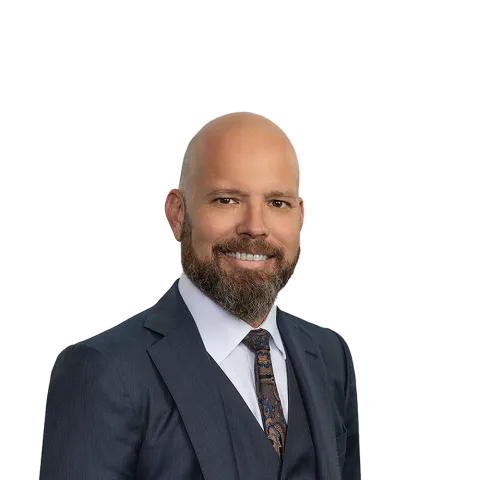Results may vary depending on your particular facts and legal circumstances. The attorney featured above is licensed in Florida. For a full list of attorneys in your state please visit our attorney page.
TITUSVILLE LABOR AND EMPLOYMENT LAWYERS
If you've been underpaid, misclassified, or denied overtime, we fight wage & hour theft to recover the compensation you’ve earned and hold employers accountable.
Results may vary depending on your particular facts and legal circumstances. The attorney featured above is licensed in Florida. For a full list of attorneys in your state please visit our attorney page.
Labor & Employment Lawyers In Titusville, FL
Titusville is an attractive place to live, especially for NASA employees and their contractors that work at the nearby Kennedy Space Center, which employs about 8,500 people. Other large employers in the area include Parrish Medical Center, Walmart, Publix, Knight's Armament, Lowe's, and Winn Dixie. Working in Florida offers unique pros because the state does not levy personal income taxes and has the nation's largest gross domestic product, which requires a lot of employees to support the economy. However, labor and employment disputes can affect the livelihood and security of workers at any time.
Labor and employment laws are complex and frequently change at the state, federal and administrative levels making it crucial to have personal representation when you have a dispute with your employer. Whether it's discrimination, harassment, wage theft, overtime violations, or wrongful termination, you need someone on your side fighting for your rights. Morgan and Morgan are here to help with expert labor and employment lawyers in Titusville, FL, at your service.
We believe the workplace should be free from unfair and illegal practices. That's why we file more employment litigation cases than any other law firm in the country. The rights of workers must be protected, and employees that exercise their rights should not have to worry about wrongful termination or retaliation. Although we handle a wide variety of civil litigation, labor and employment law is part of our firm's bedrock.
Finding a Titusville Employment Lawyer
Federal and state laws are supposed to protect workers from being mistreated by their employers. Still, unfortunately, that doesn't always happen. We understand that workers have concerns about suing their employer. You may worry that you'll be fired or face workplace retaliation, or maybe even have trouble finding work in the future. Still, it's not right to be forced to work under illegal conditions. If you believe your employer is violating state or federal labor and employment laws, contact us today to discuss a potential lawsuit.
150,000+ Five Star Reviews
The reasons why clients trust Morgan & Morgan.
Results may vary depending on your particular facts and legal circumstances. Based on select nationwide reviews.
Our Results
How It Works
Unsure what to do next? With 35 years of experience, our personal
injury lawyers will guide you every step of the way.

Contact Us 24/7 - It’s Free
Start your claim

Meet your dedicated attorney
Meet the attorneys

We fight for more
Learn more about the case process
Results may vary depending on your particular facts and legal circumstances. The attorneys shown in these photos may not be licensed in your state. To find an attorney licensed in your area, please visit our attorney page.
Local Care
Backed by America’s Largest Injury Law Firm.
$30 Billion
Recovered for clients
nationwide700,000+
Clients and families
served1,000+
Attorneys across
the country1
Click may change your life
The attorney featured above is licensed in Florida. For a full list of attorneys in your state please visit our attorney page.
Results may vary depending on your particular facts and legal circumstances.
Learn More
Injured and not sure what to do next?
We'll guide you through everything you need to know.
What Are the Six Most Common Forms of Employer Misconduct?
If you've experienced employer misconduct, it's essential to understand you have a limited amount of time to file a claim against them. In Florida, you have four years from the date of the alleged violation to make a claim. However, due to a change in the Florida Civil Rights Act of 1992, now employees who claim discrimination have just one year to file a lawsuit if the Florida Commission on Human Relations fails to issue a determination on alleged discrimination within 180 days. Time is of the essence, so don't delay getting in touch with our labor & employment lawyers in Titusville, FL.
Although by no means an exhaustive list of the kind of cases we handle, here are the six most common forms of employer misconduct:
- Failing to meet minimum wage requirements
- Ignoring overtime wage laws
- Misclassification of employees (exempt, non-exempt, or independent contractor)
- Workplace discrimination
- Workplace retaliation
- Wrongful termination
Failing to meet minimum wage requirements - For the majority of jobs in Florida, the minimum wage is set at $10.00 per hour. It's slated to be raised to $11.00 per hour on September 30, 2022. By September 30, 2026, the minimum wage will rise to $15.00 per hour. All Florida employees are entitled to receive minimum wage except tipped employees, which currently make $7.98 per hour. Still, the employer must make up the difference if the tipped employee's wages and tips don't equal minimum wage.
Failure to pay employees at least minimum wage is a violation of Florida's labor and employment law. Under some circumstances, an employer could be in violation of the Fair Labor Standards Act (FLSA). The FLSA is in charge of setting the federal minimum wage.
Ignoring overtime wage laws - The FLSA also sets the standards for overtime pay. Employers must pay overtime wages to non-exempt employees (also defined by the FLSA,) which includes all hourly workers plus some salaried employees under certain circumstances. Overtime pay should be 1.5 times the hourly worker's regular rate of pay when the employee works more than 40 hours in a single workweek. Right now, that would be $16.50 per hour for time worked over 40 hours. The FLSA defines a work week as any seven consecutive work days.
Hourly employees that earn less than $455 per week ($23,660 per year) and are working in a non-exempt industry should be eligible for overtime pay. Overtime laws protect most manual labor jobs. However, some jobs have specific protection, such as firefighters, paramedics, police, practical nurses, and paralegals. Employers can easily exploit employees in these positions because they often require extended work hours.
However, salaried employees that earn at least $455 per week are not covered under overtime laws. These employees usually fall under executive, administration, or other professional categories, typically known as white-collar jobs. Other categories of exempt employees are external salespeople, some types of computer-related workers, and independent contractors. Some transportation employees, specific agriculture and farm workers, and live-in nannies or housekeepers are also exempt from overtime pay.
To be certain of whether you're an exempt employee and, therefore, not eligible for overtime pay, it's best to talk to one of our attorneys. The reason for this is some employers deliberately or mistakenly misclassify employees.
Misclassification of employees (exempt, non-exempt, or independent contractor) - How your employer classifies you as an employee can impact your rights in a variety of ways. Some simply don't understand, but others may misclassify you in an attempt to get around overtime laws and skirt other responsibilities. Exempt employees are not protected under the FLSA because they are supposed to make over $455 per week as salaried workers. As mentioned above, these jobs are typically white-collar management-style jobs. But simply having the title of "manager" in a role doesn't necessarily mean you are an exempt employee.
Some big-name employers have been caught exploiting workers by giving them the title of manager. But, these employees weren't truly managers. They spent much of their time doing manual labor, which under the FLSA means they are non-exempt and therefore entitled to overtime pay.
Likewise, misclassifying employees as independent contractors has landed huge companies like Amazon and DoorDash with multimillion-dollar lawsuits. Employers benefit from using independent contractors because they are not obligated to provide them with health insurance, vacation days, sick time, and other employee benefits. Independent contractors also don't have the benefit of protection from workplace discrimination, wrongful termination, and harassment under the FLSA.
If you believe you've been misclassified and are therefore not receiving the benefits you should be entitled to, reach out to our labor and employment lawyers. Our primary focus is on helping employees defend their rights.
Workplace discrimination - Workplace discrimination covers a wide variety of illegal behaviors. It can involve hiring and firing practices, promotions and demotions, how much employees make, and opportunities for career advancement. Discrimination violates Florida state law and federal law.
The Civil Rights Act protects workers from discrimination based on their sex, race, color, national origin, and religion when the employer has 15 or more workers. The Florida Commission on Human Relations further says it's against Florida law to discriminate based on race, color, religion, sex, pregnancy, national origin, disability, age, or marital status. Other federal laws make it illegal to discriminate based on age. Any employee who is 40 years or older is in a protected class. The Equal Pay Act of 1963 makes it unlawful to discriminate on the basis of sex, including how much an employee is paid. It's also illegal to discriminate against persons with disabilities at the federal level.
If you believe you've been the victim of workplace discrimination, don't hesitate to talk to one of our workplace discrimination lawyers today.
Workplace retaliation - When a worker exercises their right to report employer misconduct, some unscrupulous employers may retaliate against the worker. This is illegal and should never go unchallenged. Retaliation often occurs because an employee files a workers' compensation claim or complains about sexual harassment or discrimination. Some common forms of retaliation involve firings, demotions, changing hours or duties as a form of punishment, and creating a toxic work environment to force an employee to leave their position.
Florida state law offers protection from workplace retaliation. If you believe you've experienced workplace retaliation for exercising your legal rights, we may be able to help.
Wrongful termination - Although Florida is an "at-will" state, that doesn't mean you can be fired for an unlawful reason. At-will means that without a contract between employee and employer, the employer can fire an employee for any reason or no reason at all without notice. From a legal perspective, wrongful termination is very specific. It is anything that runs afoul of state or federal anti-discrimination laws or contractual breaches. Employers cannot fire employees because they filed a complaint against the employer, or brought wrongdoing by the employer into the light, otherwise known as whistleblowing.
We can offer legal remedies for wrongful termination if we can prove you were fired or laid off for any illegal reason. An employer may have to pay for lost wages and emotional distress; under some circumstances, you may be awarded punitive damages for a particularly egregious case.
What Other Types of Labor & Employment Disputes Do Morgan and Morgan Handle?
While we've covered the top six labor & employment disputes employees face, there are other common issues we have expertise in, such as:
- Workers' compensation disputes
- Workplace safety
- Family and medical leave disputes
- Child labor laws
- Immigration issues
Morgan and Morgan Labor and Employment Lawyers
At Morgan and Morgan, we are committed to workplace fairness and protecting your rights as a worker. We understand the specific challenges employees face when they stand up to an unethical employer. Our belief is they should be held accountable, and you should be compensated. We can fully explain state and federal laws that will impact your claim and work diligently to make your claim a successful one.
When it comes to something as important as your job, you need to work with the right kind of lawyers. Our labor & employment lawyers in Titusville, FL, have the experience and resources required for your case. Labor and employment law is complex, so it makes sense to work with a legal team that has expertise in this area. You don't have to fight an employer who violates labor laws on your own. Contact us for a free and confidential case review today. You don't pay if we don't win.
























